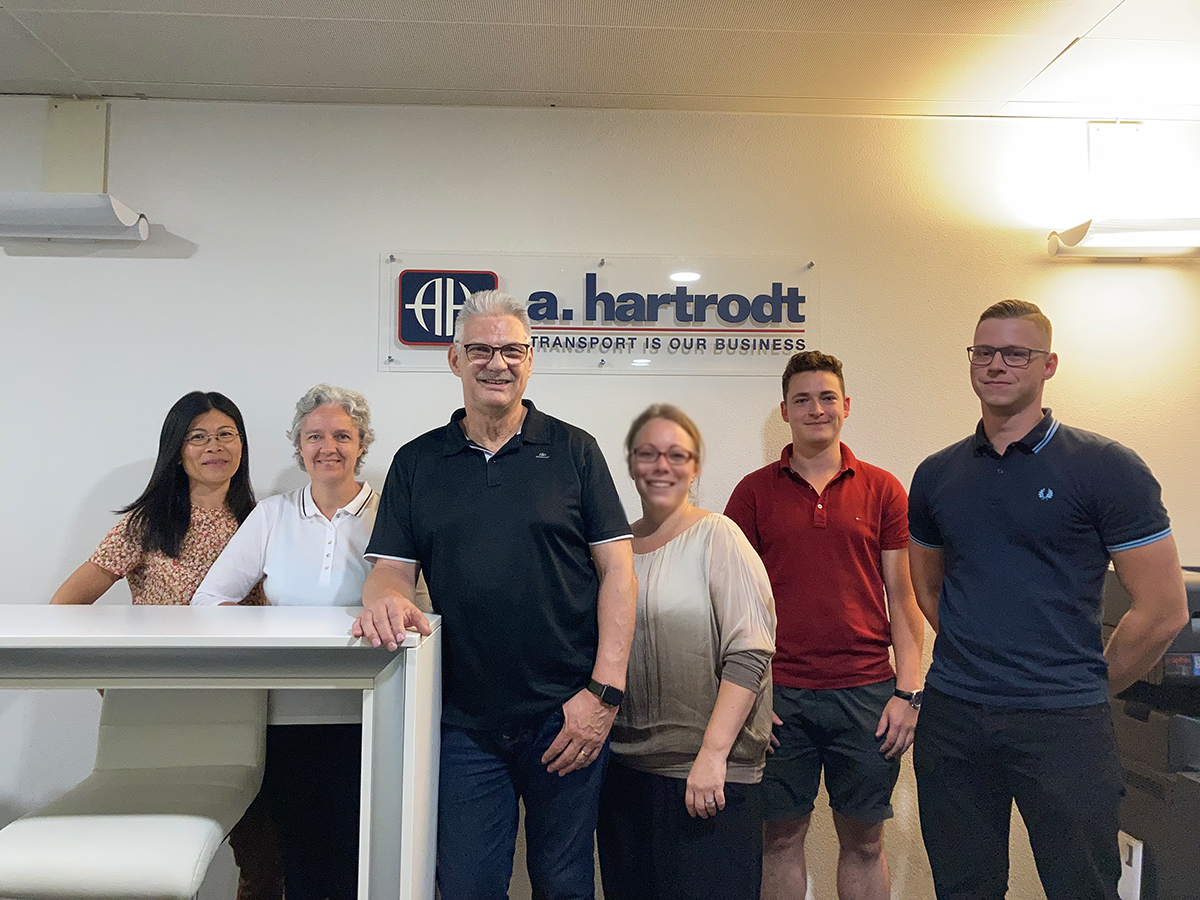PARTNER COMPANY ABROAD: TAKING ON TRAINEES IS A “WIN-WIN SITUATION”
Felix had actually intended to spend his stay abroad during his training in Singapore or Mexico. As a result of the coronavirus pandemic, he ended up in the city of Basel in Switzerland instead. In the interview, Regional Managing Director for Switzerland, France and Belgium, Jens Roemer, and Route Manager in Basel, Beat Martin Huerzeler, report on their positive experience of working with the trainee and explain why they would take on trainees from Germany again.

How did it come about that Markus Felix joined you in Basel rather than going to Singapore or Mexico?
Roemer: Having worked for the company in Singapore for 13 years myself, I was absolutely convinced that it would be the best thing for Markus too. When I heard that it wouldn’t be possible for him to go to Singapore after all, I got together with his training manager to find an alternative. We then had the idea of sending him to the branch in Basel.
AFTER ALL, THERE IS A LOT TO LEARN AND GREAT OPPORTUNITIES EVEN AMONG DIRECT NEIGHBOURS. THERE IS HARDLY A MORE INTERCULTURAL OFFICE THAN THAT IN BASEL SITUATED NEAR THE BORDERS OF THREE COUNTRIES.
As Regional Manager, you are based in Antwerp – how did the office in Basel react to your suggestion of taking on a trainee from the company head office in Hamburg?
Roemer: I did have to spend a little time convincing them to begin with. I spoke with the managing director in Basel and she said that they didn’t need any assistance or interns. Nevertheless, I persuaded them to let Markus go there anyway because I was certain that he would benefit their office. And that really was the case. He worked independently and quickly became a great help. Things were very busy in the summer, as there was a lot of catching up to do in the shops due to the pandemic.
Mr Huerzeler, you were one of the colleagues in Basel who supervised Markus Felix and helped him when he had questions. How did you find the time with him?
Huerzeler: We have a small team of just seven people in Basel. Markus Felix was the first trainee to come to us on an internship during his training. A French colleague showed him the ropes before she went on leave. Markus then represented her during her leave. After just one week of initial training, he dealt with airfreight import by himself together with me. I was rather surprised to see how good he was at the job and how much he called into question. He is able to grasp new tasks very quickly and really enriched the team. That helped us a great deal during the stressful summer.
What was he able to learn during the internship with you?
Huerzeler: I think the holiday cover was particularly interesting for him – among other things, because he sensed that he was able to take on such a responsibility. It was also fascinating for him to see the different logistics processes involved when a site is located far inland. That gives rise to differences in transportation. Another difference is that the customs processes are different because Switzerland doesn’t belong to the European Union. Markus thus gained a wide range of new expert knowledge.
Do you also have a personal motivation to support young people like Markus in spending time abroad?
Huerzeler: Certainly. I know from my own experience that a stay abroad is a great enrichment. I have been working in the industry for 40 years now and have during that time repeatedly spent two to three weeks abroad. In doing so, you can establish contacts for life. I have stayed in touch with some of my contacts to this day – both professionally and privately. Markus has also experienced how valuable it is to exchange ideas with colleagues abroad.
Roemer: I can only agree with that. During my time abroad – especially in Singapore – I learnt so much and grew a great deal. Many managers have reached their current position by spending time abroad. I now really enjoy supporting other people in this process and watching how the young people develop their skills. In addition, we must remember that the young generation is our future. We need good young talent in the industry.
And what is your conclusion – would you take on a trainee in your office again?
Roemer: All parties involved benefit from a stay abroad – the trainees, the branch abroad and the head office in Germany. The example of Markus just goes to show that trainees from Germany have a great deal to offer and provide substantial support. It really is a win-win situation. As a result, I would particularly like to support such projects in the future too.
ALL OF US IN THE BRANCH IN BASEL WERE REALLY IMPRESSED BY THE EXPERIENCE OF WORKING WITH MARKUS. AS A RESULT, WE ARE NOW HAPPY TO WELCOME ANYONE! WE ARE DELIGHTED TO HAVE THE OPPORTUNITY TO PASS ON OUR KNOWLEDGE.
Thanks a lot for the interview!
